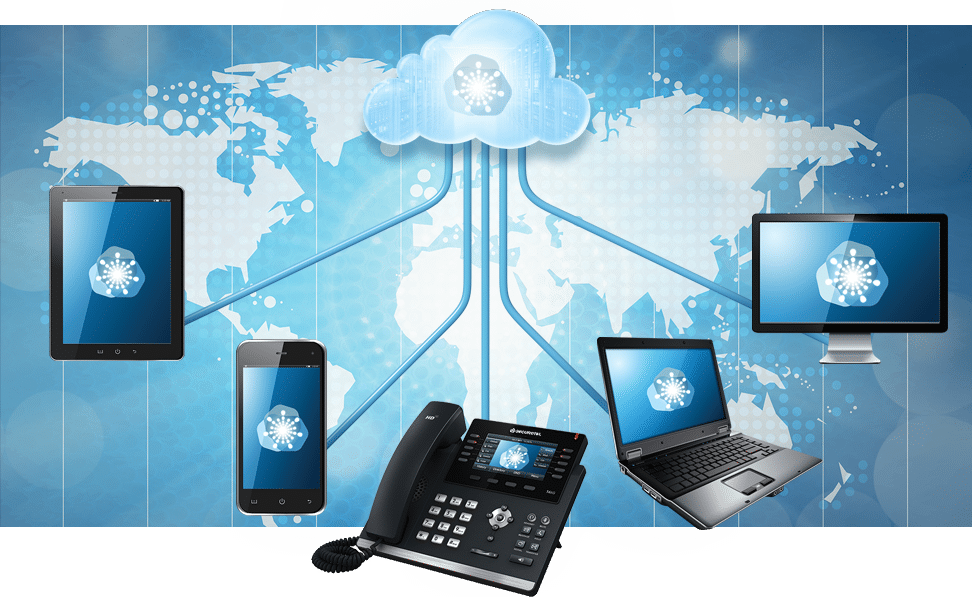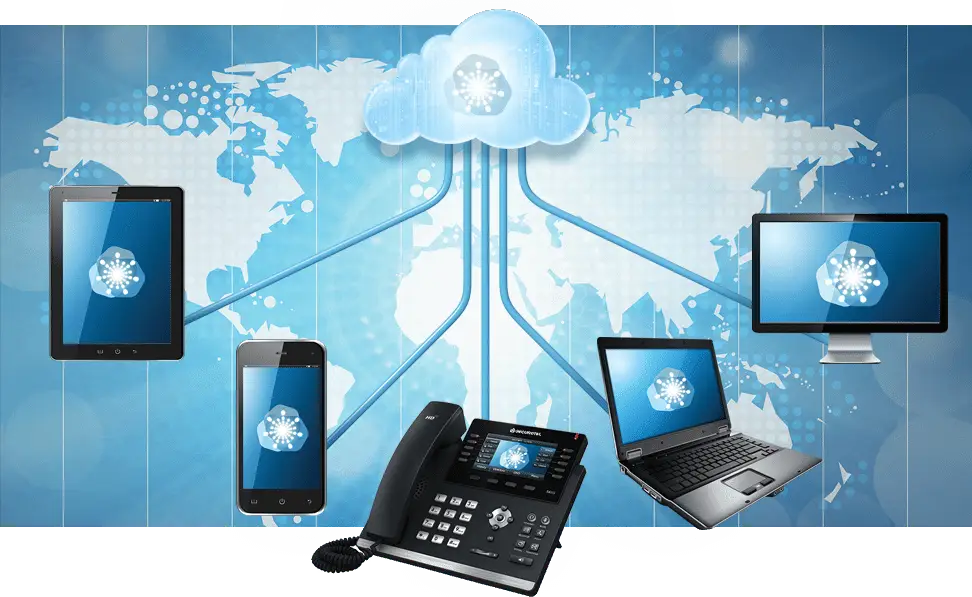 The rewards of some business investments are difficult to nail down. They sound like pretty good ideas in theory, but do they really translate into greater efficiency, more competitive advantage, high customer satisfaction, and a healthier bottom-line? Who really knows.
The rewards of some business investments are difficult to nail down. They sound like pretty good ideas in theory, but do they really translate into greater efficiency, more competitive advantage, high customer satisfaction, and a healthier bottom-line? Who really knows.
Then there are business investments that don’t need a hype machine or spin doctor to convince anyone because the benefits are straightforward, easy to understand, and as down-to-earth as it gets. A cloud business phone system is definitely in this category.
Here are the 5 most important — and proven — benefits of a cloud business phone system:
Substantial Year-Over-Year Cost Savings
Many businesses are stunned to discover just how much they stand to save if they switch over from a conventional landline phone system to an advanced and future-proof cloud telephone system. While each business is different, the savings are typically anywhere from 30 percent to 50 percent a year — and in some cases, it is far greater.
Where do these dramatic cost savings come from? Again, this is simple to answer and easy to verify if you wish to do some research: with a cloud telephone system, there is no expensive on-site PBX to purchase, install and maintain, nor are there any costly trunk lines to rent. On top of this, all domestic long distance calls are free (and international calls are priced well below phone company rates), and user-to-user calls don’t count against monthly allotments — even if the calls are between colleagues who are on different sides of the state or country.
Basically, the only thing that businesses need to buy are backup power systems (so they can continue using the system in the event of a local power outage), managed routers (so monitoring, configurations and upgrades can be handled remotely by the vendor), and if desired, affordable IP Phones that have features like built-in monitors for web calls.
Total Mobility
When using a cloud business phone system, users can make and receive calls — and access other system features, like chat, checking status, and more — from their smartphone. They can also forward live calls to their car or any other Bluetooth-enabled device or system, and pick up voicemails on-the-go as audio files.
What’s more, when employees make calls on their smartphone (through an app and not their device’s native phone), the business’s name and the number shows up on caller ID — not their personal name and number. In addition to protecting privacy, this presents a professional and polished image.
Business Continuity
We briefly mentioned business continuity above, but it is such an important aspect that it’s worth focusing on further.
With a conventional landline phone system, in the event of a local power outage that knocks out the phone company — whether for a few minutes, hours, or even days in the case of extreme weather events and other emergencies — there is no way to make and receive calls.
However, a cloud telephone system (with a backup power network) will stay online, and as such employees can continue making and receiving calls on their smartphone. They can also forward calls to other numbers (including landlines), modify auto-attendant greetings to keep customers and other callers updated on operational status, and more.
Seamless Scalability
With conventional phone systems, adding users is costly, time-consuming, and typically involves having a technician perform an on-site visit. And on the other end of the spectrum, businesses that downsize or delegate activities to other offices wind up paying for excess phone system capacity. For example, they may have 100 lines but only 70 employees.
A cloud telephone system is built for seamless scalability. Adding new users is fast, easy, and very affordable. There are no lines to install because everything runs on the existing data network (the same one the businesses use for email, accessing the web, transferring files, and so on).
And in the event of a downsize or consolidation, businesses simply let seat licenses expire — which means they aren’t stuck with paying thousands of dollars a year (and sometimes thousands of dollars a month!) in excess capacity.
Carrier-Grade Features
CEOs and CFOs love the cost savings, mobility, scalability, and business continuity of cloud telephone systems. But what end users love the most is access to a whole new level of carrier-grade features, such as voicemail-to-email, video calling, auto-attendant, music on hold (which is great for promoting new products and services), and so on.
In the past, only large enterprises could afford to give their employees a suite of sophisticated features. But with a cloud telephone system, every business can do this — even if they are a dynamic startup with a skeletal staff (hey, we all have to start somewhere, and Apple, Google, and HP started in a garage!).


